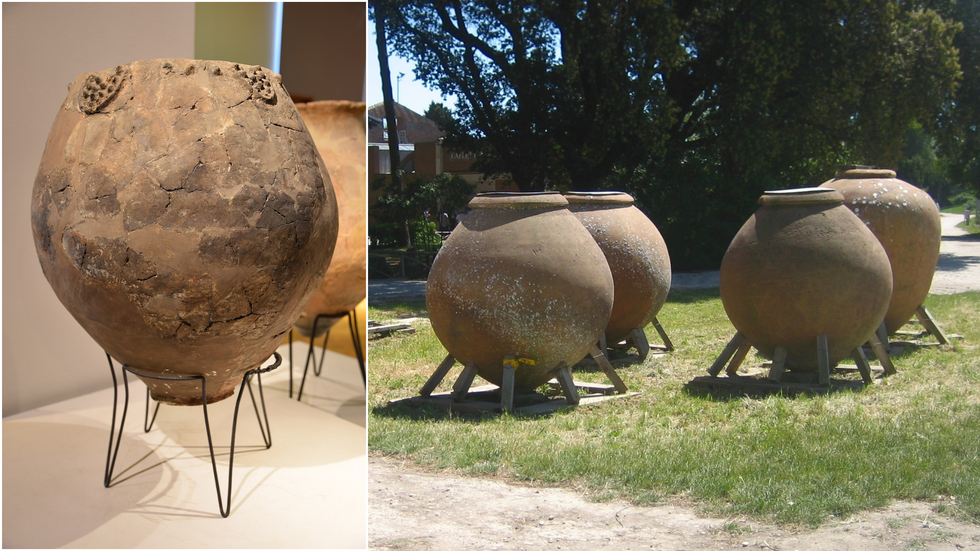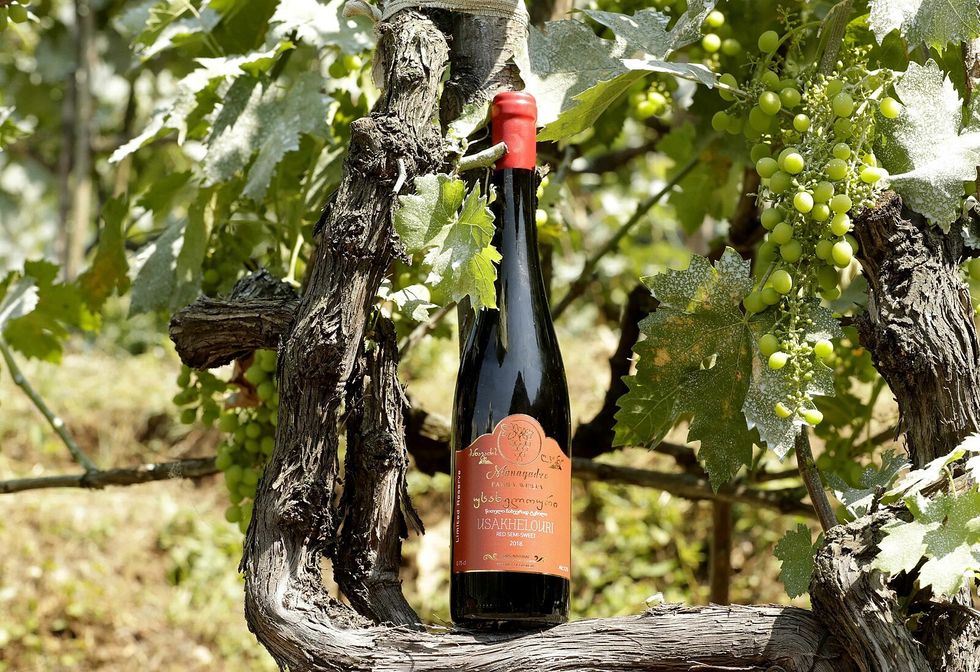Wine from ancient Rome found to have been slightly 'spicy' in landmark culture discovery

Some ancient Roman wines may have tasted spicy and even smelled like curry
Don't Miss
Most Read
Latest
Wine in ancient Rome was spicy, smelled like toast, nuts, fruit and green tea – but would have tasted “fantastic”, a new study has revealed.
The ancient Romans were wine fanatics; they deemed the drink a necessity, worshipped the wine god Bacchus, and left an indelible mark on wine-making today.
But scientists had not known precisely how Roman wines tasted – that is, until a team from Ghent University in Belgium recreated millennia-old production techniques and sipped the results.
Dr Dimitri Van Limbergen, lead author of the wine study, said: “Ancient wines made from white grapes and made according to techniques we discuss are bound to have tasted oxidative, with complex aromas of toasted bread, dried fruits, roasted nuts, green tea, and with a very dry and sappy mouth feeling.”

Georgian wines are made in qvevri (left), while the ancient Romans (and the research team) used dolia
|Wikimedia Commons
In ancient Rome, a dolium – a large round ceramic pot with a wide opening – would be filled with grapes and buried in the ground, where natural yeast on the grape skins would start to ferment the sugars in the fruit, producing alcohol.
CO2 would be allowed to escape the dolium, then it would be sealed, allowing the grapes to get to work.
That’s precisely the process the research team from Ghent used in their study; it may seem low-tech, but burying the dolia underground gave the scientists acute control over temperature, humidity and acidity, meaning they could decide on their wine’s eventual flavour.
It’s a similar process to traditional wine-making practices in Georgia – and while the former Soviet republic may not cross many people’s minds as a wine hotspot, it’s where humans first made the drink over 8,000 years ago.
LATEST DEVELOPMENTS:

Ancient Romans worshipped the wine god Bacchus
|Pexels/paologallophoto
Van Limbergen said many modern Georgian wines are made the same way – though in a qvevri, not a dolium – and they “taste fantastic, and are very drinkable”.
One modern Georgian semi-sweet wine is considered so fine, wine-makers could not adequately name it, and is known as Usakhelauri (nameless).
He said: “Fermenting and storing wine in semi-buried clay containers was the most important way of winemaking in the Roman world between the 2nd century BC and the 3rd or 4th century AD, after which barrels became increasingly used.
The research paper itself says the process “can result in great wines because it concentrates colour and creates pleasant grassy, nutty and dried fruit-like flavours”, and some ancient Roman wines may have tasted spicy and smelled like apples, caramel or even curry.

A bottle of Usakhelauri (nameless), a Georgian semi-sweet wine considered so fine, wine-makers could not name it
|Wikimedia Commons
Qvevri wine-making in Georgia is one of four UNESCO-protected elements of ‘intangible cultural heritage’ in the country, which is gaining popularity as a desirable production area once more – between 2009 and 2019, wine exports have multiplied ten times over.
Van Limbergen stressed the value of his team’s research: drawing parallels between modern and ancient winemaking could “debunk the alleged amateurish nature of Roman wine-making” and teach us more about the ancient world.
The “spicy” wine manufactured by the ancient Romans may not be as unusual as it sounds; many modern wines like Shiraz, Bordeaux or Cabernet Sauvignon are often referred to in similar terms.
Georgia isn’t the only once-overlooked producer in the wine world making strides – English sparkling wines recorded a bumper harvest last year, and are beginning to chip away at Champagne’s market share in the UK.











